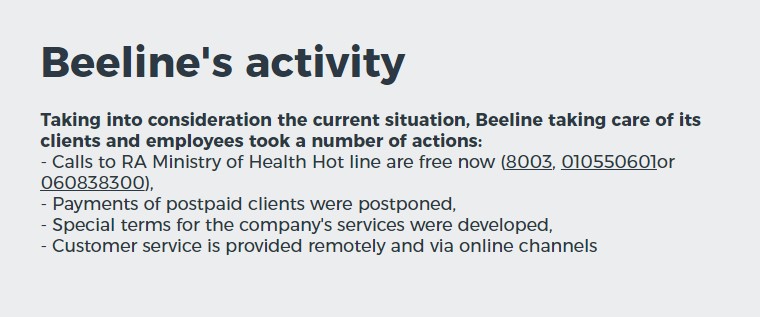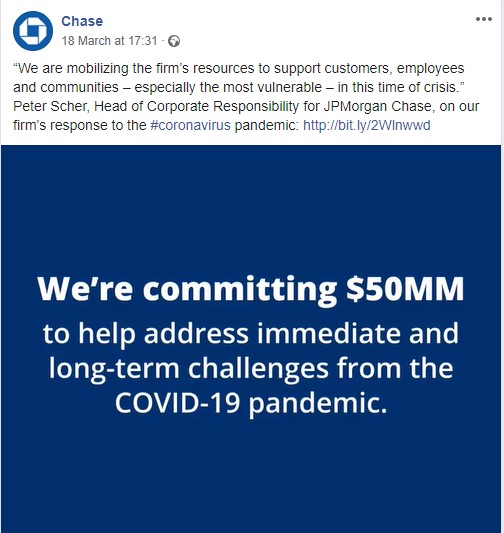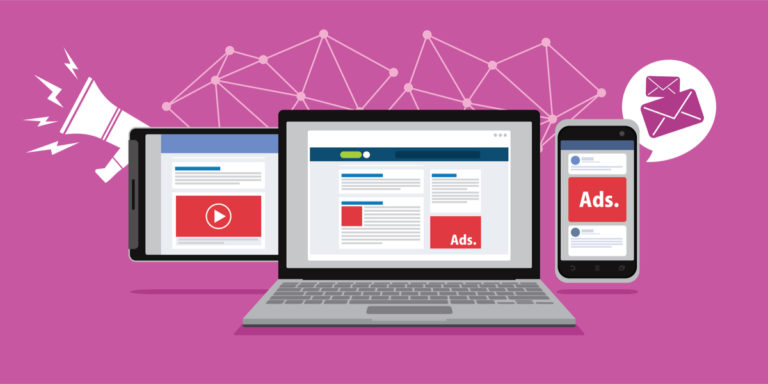If only you could make precise market recession predictions and know when the next crisis is going to happen. You’d prepare yourself and your team in advance, and plan a recession marketing strategy to overcome the consequences more easily.
Since you are old enough to read these lines, you will remember the financial crisis of 2007 to 2008. Thousands of businesses just stopped operating, but thousands of others thrived, right?
We decided to dive deep into the topic and have some inspiring news for you. Here’s what you will find in our post:
- What strategies you should adopt when the recession is already there,
- How to survive an economic crisis with dignity and even leverage it,
- Examples of company strategies that can guide you in hard periods.
Ready to overcome the dark sides of recessions and crises? Let’s look into it.
10 Recession Marketing Strategies to Overcome Global Challenges

Find Yourself in the List of Recession-Proof Businesses
Some types of businesses have an extremely low possibility to close down during recessions, while others are at high risk.
For example, if there’s a pandemic, people won’t attend crowded places (cinemas, malls, etc.) even if they have money. Businesses with physical locations are extremely vulnerable during similar cases.
The scenario is a bit different during a financial crisis. People have the freedom to attend wherever they want, but there’s a cash problem. That’s why they will probably use public transport instead of a taxi, will cook something at home rather than order it, etc. Restaurants and taxi services are examples of businesses at a high risk of losing money.
Now you are asking which businesses are recession-proof? Which types of businesses will continue growing even when everyone else is shrinking? Well, some of them include:
1) healthcare services (health is the foundation of well-being),
2) repair services (people will prefer to repair rather than buy a new one),
3) funeral services (people have to follow certain procedures),
4) insurance services (people worry about their health during recessions more than ever),
5) tobacco and alcohol (people may consume alcohol and tobacco even more),
6) hygiene products (people have to follow basic hygiene rules),
7) food production (people have to eat to survive).
Does your business provide services and products in one of those niches? These offerings are essential, so your business may survive.
Look at Previous Recession Cases
History repeats itself. Recessions usually occur because of severe circumstances, such as high-interest rates, low wages, and virus spread.
Depending on what circumstances surround you, research how companies similar to yours behaved years or decades ago. Or find examples of companies with great recession marketing and discover the secrets, and principles behind success.
For example, Groupon managed to grow and include 35 companies. You might think that starting a business during a crisis is a crazy idea, but Groupon proved the contrary.
When there’s a recession, people have a shortage of money, and businesses have a shortage of customers. Groupon’s mission was to bring together businesses and customers, helping both parties to mitigate the consequences of the crisis.
Groupon was informing customers about the daily deals that companies were offering. Thus, companies were able to sell their products, and customers were able to save money and buy their favorite products at the same time.

This is only one example of how flexible you should be in your strategies and actions. Understanding what the circumstances are demanding is what can lead you to grow even when there’s chaos.
We don’t suggest that you close your business and open a new one to meet the requirements of the day. Maybe you can start offering additional services, temporarily start selling products in high demand, etc.
Don’t Cut Your Marketing Budget
Many businesses think that stopping marketing during a recession is a solution to their problem. Actually, it creates even more problems.
Why? As competition increases, so does the importance of increasing brand awareness.
What we recommend is thinking twice before working on your recession marketing strategy. Yes, you need to invest in promotion, but you should review the channels that you have been relying on so far.
Open your website analytics and look at numbers. Compare channels you invest your precious time and money in. Which of them brings you customers at lower costs or with higher customer retention rates? Which of them is worth investing your money in further to guarantee a stable flow of buyers and clients?
This is what you need to pay attention to. If Google ads seem to come more expensive, while SEO works better, maybe it’s time to invest your Google ads budget in SEO too.
Offer Discounted Prices
We are not talking about being cheap. You should never undervalue your products, and moreover, your efforts to create them.
Your job is to reach harmony:
- evaluate what average consumers are experiencing.
- understand how your product/service’s price can fit into their budget.
People love getting great deals and saving money. But during a recession, they are not only inclined but also forced to do it. People face cash flow problems, though they also need and want to make purchases.
Make your pricing more flexible, so customers prefer buying from you. Be the one who gives them the chance to save and get access to the same quality.
Adapt to Change Quickly
In any circumstance, be it a financial crisis or a pandemic, people start feeling a need for something. If you aren’t able to produce it directly, you can offer small gifts that resonate with the situation and can arouse interest.
For example, during the time of the coronavirus, people were actively buying hand sanitizers and masks. A shoe company started giving away hand sanitizers to all those who would choose a shoe from their website and order for free delivery.
The idea is that the company cares about its customers and is ready to deliver that small gift to people, so they don’t leave their houses.
People probably wouldn’t buy a shoe just to get a free hand sanitizer. But those having a need or desire for a new shoe would likely turn to that company.
Offer Something New & Unique and Raise Awareness
Even when the circumstances around us are changing, we are still interested in what’s new and are ready to pay if we like it.

During the downturn in the late 2000s, it doesn’t seem that people would enjoy a new pizza recipe. But they did!
Domino’s Pizza announced its new recipe when it didn’t seem like a perfect time. They started reinventing their pizza flavor in 2008 and introduced it to the public a year later.
Don’t be afraid of offering novelties during recessions. But here again, we come to the conclusion that you should actively promote your new offer as well.
You should dedicate 20% of your efforts to developing your new offer and 80% to getting it in front of your audience.
Draw Attention With Public-Reaction-Worthy Action
When a specific topic becomes central to daily news and conversations, you should contribute to the movement in your way.
Don’t just try to talk about what’s happening with the obvious goal to sell your products or services. Use the circumstances to increase your brand awareness and brand reputation.
That strategy will serve your recession marketing goals in the long run and introduce you in the light of a respectable brand.
What you can do is launch a charity campaign with a branded hashtag, offer temporary perks to your customers, etc. Don’t forget that word-of-mouth marketing is powerful, no matter where and how people live.
For example, Beeline, a telecommunications company, started offering some perks to its subscribers as a result of the coronavirus outbreak:
- The company made it available for subscribers to call the Ministry of Health hotline for free.
- The company postponed the payment deadlines for postpaid clients.

Another example is Chase Bank. They announced committing $50 million to overcome the immediate and long-term challenges caused by the coronavirus.
Of course, you don’t have to be as generous as Chase Bank. But depending on what business you do, you can definitely find a way to make people’s life easier.

Here’ is when PR should speak louder than marketing. You can use social media, email, and SMS marketing to spread the word about your activities, and contact journalists to cover your campaign.
The best part is that getting featured for PR purposes is usually free. Because journalists are always looking for fresh and share-worthy news, you can become their next source of inspiration.
Partner With Another Company
This approach can ideally work both for product-based and service-based services. Of course, you don’t want to lose your brand identity. But there are cases when it’s your chance to survive and move forward. Do you know companies that offer supplementary items to your products? Cooperate with them so you “advertise” their products, and they “advertise” your products to their audience.
In similar cases, you can also benefit from each other’s ideas, brainstorm together, and launch joint campaigns.
Another thing you can do is refer to each other as ideal prospects. Say you offer construction services, and one of your clients is looking for an interior designer. You can recommend your partner’s company and expect a similar attitude from his/her team. The same goes for software companies; if you’re an expense management SaaS, you may want to partner with travel-management software to create a well-rounded travel & expense management solution.
Your partner’s company provides services that complement yours. So you won’t be losing any clients and even will help them with good advice.
Create Campaigns to Retain Existing Customers
When comparing customer retention to acquisition statistics, you will see that the first approach is more budget-friendly and effective.
For example, gaining new customers is five times more expensive than retaining existing ones. And ensuring repeat purchases is usually easier than building relations from scratch and paving the way for the first purchase.
This philosophy doesn’t mean you shouldn’t look for new opportunities. It simply means you shouldn’t disregard how precious your existing customers are and pay special attention to loyalty programs. You can create campaigns and offers that are available only for your current customer base and aren’t published on your website or social media.
Reach Out to a Marketing Agency
Reaching out to a marketing agency doesn’t always mean signing a long-term contract with them and allocating a monthly budget worth thousands of dollars. You can hire an agency to take care of your recession marketing stuff and come up with creative promotion strategies.
If you are not content with results within a few months, stopping cooperation is always an option.
Maybe you are good at implementation and just need some guidance, or an objective review from a third-party professional to evaluate your current activities. In that case, you can jump on a free consultation with a marketing agency, get some ideas, and work on developing them by yourself.
We hope your business is stable enough to overcome the heavy consequences of financial recessions and pandemics. With these 10 practical recession marketing strategies and examples at hand, you can definitely come up with ideas that will open new doors for your business.
Do some research, consult with your team, and build partnerships. There’s always a way to ride out the storm.


